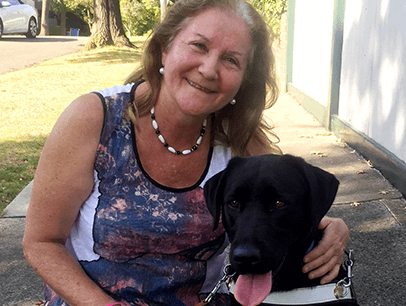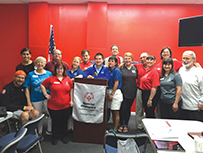
Toastmasters club mission is to help all members succeed, making them more self-confident and helping them reach their goals in an environment that supports the member. Members and potential members with disabilities are part of our membership, yet sometimes clubs overlook this aspect. Creating an inclusive club isn’t difficult, and with some accommodations all clubs can be more welcoming to all members.
Creating a club that is inclusive can feel daunting—it can be difficult to understand what accommodations a member or members need to meet their goals and where to turn for help. As a long-time Toastmaster and someone who has spent 30 years as an activist and advocate for inclusion, I’ve worked with numerous clubs to help them be more welcoming and accommodating to guests of all abilities. Here are some general tips to help your club become inclusive:
1 Ask what members need:
Many members with disabilities will have access to the technology and supports that will help make them successful. Don’t hesitate to ask what you can do to help them succeed. Not all supports are expensive. It may be as simple as having a bell as an auditory cue for timing or understanding that if a member is light sensitive, dimming lights may be necessary.
2 Be aware of resources:
The Toastmasters membership application has a checkbox that allows a potential member to note they are visually impaired. There are also resources available for members with visual impairments, which are available for order through the Toastmasters website, and the accessibility options for Pathways are being updated continually. The videos included in Pathways can be viewed in closed captioning format for the hearing impaired.
3 Never confuse the ability to speak with the ability to communicate:
Not all members communicate with their voice. Sign language and computer-based communication devices, along with gestures, facial expression, and body language are all important forms of communication that can be an effective part of any speech and evaluated on their own merit.
4 Understand the role of support workers:
Some members will attend meetings with a support person. The support worker is there to assist the member in any way, but not a substitute for the member’s voice. When a member has a support person with at a meeting, address the member rather than the support person.
5 If in doubt, reach out:
Many clubs have members with disabilities, and outside of Toastmasters there are those who support people with disabilities. Without breaking a member’s confidentiality, reach out and ask general questions about how to support members with varying abilities in clubs. Members of online clubs can contact technology support for their platform regarding accessible options.
In the meantime, there are some specific things that make your club more welcoming to everyone. This list is by no means exhaustive, but can you begin to create a more inclusive club:
- Prepare print and/or online material, such as agendas and evaluation forms, in an easy-to-read font and with little decoration or extraneous material.
- Confirm if someone with a mobility scooter can use your venue. Keep in mind not only the ability for scooters to get to the meeting room but that they are larger and require a greater turning circle.
- Educate yourself on community-based resources, such as sign language interpreters, should a member require them.
- Consider having auditory cues for timing should someone need them.
There are several resources available to clubs who have questions about helping members with disabilities become successful toastmasters. Ralph Smedley said: “Toastmasters is based on belief in the individual. Many organizations ask the individual to subordinate himself to the group. Ours is the only organization I know that is dedicated to the individual.” The member is the heart of the club. With a few simple accommodations, clubs can help all their members reach their goals.
Jennifer Aucoin lives in Brantford, Ontario, Canada, and is a long-time member of Toastmasters and a current member of Great White North Online Toastmasters. She is a past club coach and Area Director. She holds a degree in disability studies and has spent 30 years history in the field as community support person, activist, and advocate for inclusion.



 Previous
Previous
 Previous Article
Previous Article

